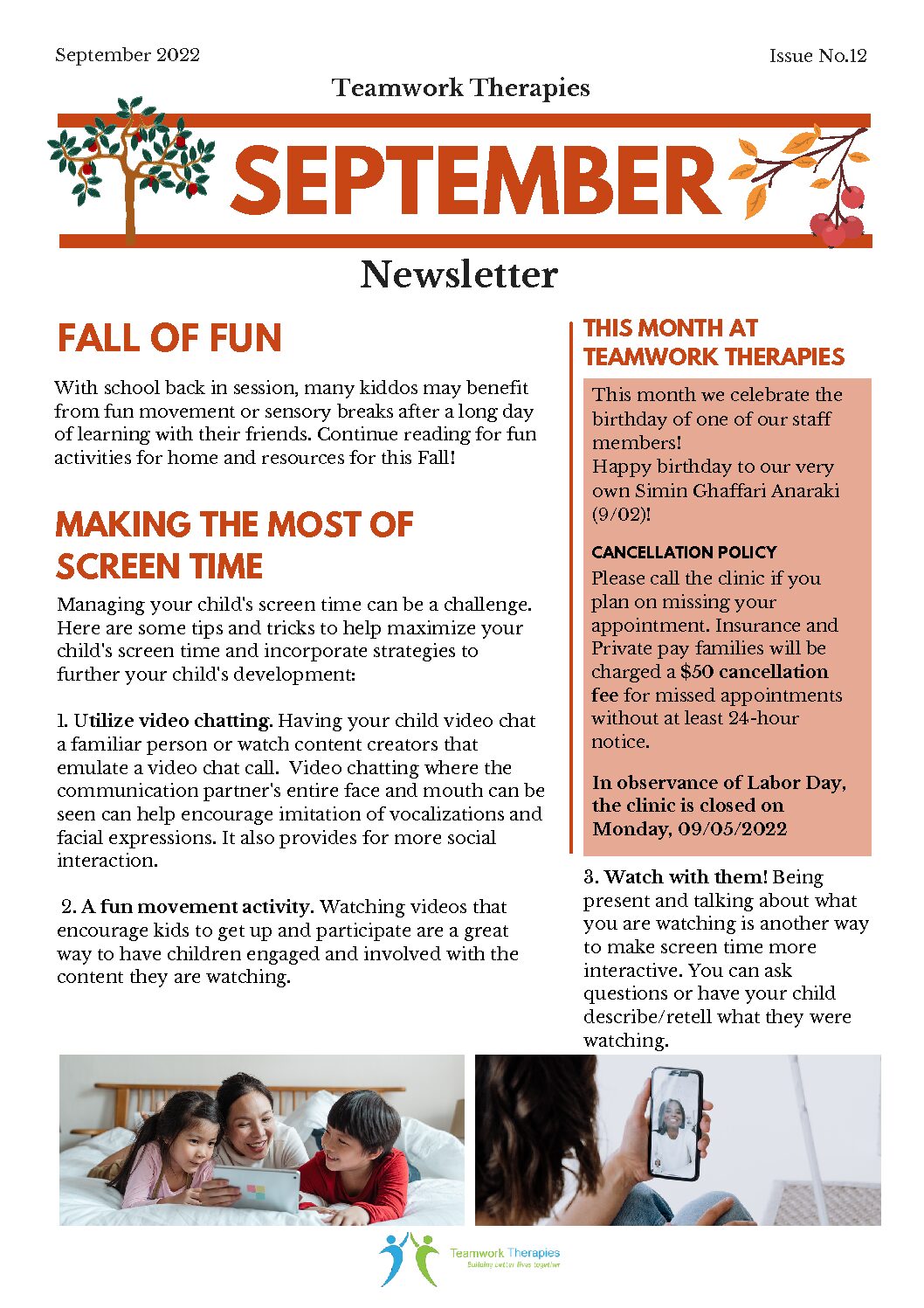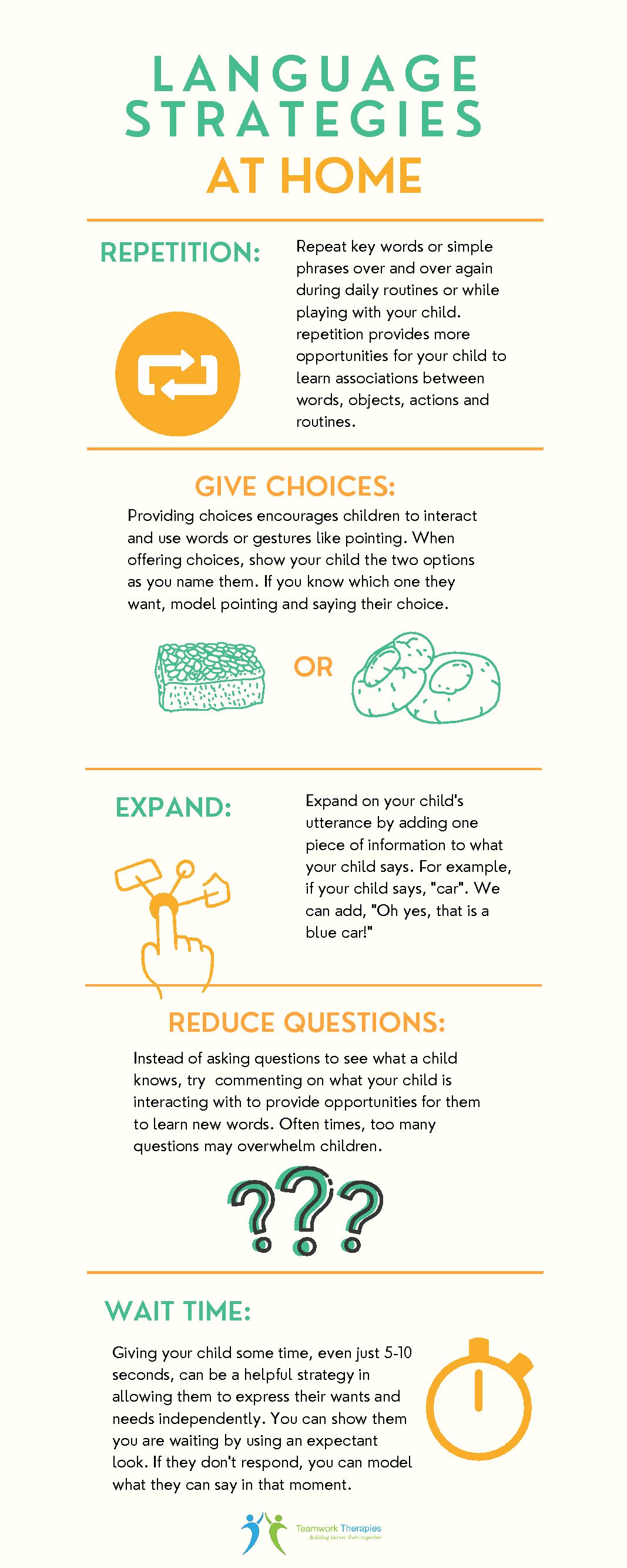Promoting Language in any weather!
While the weather may be unpredictable, we can still use it to promote language at home! Check out our parent handout on supporting your child’s language no matter what the forecast may be!

While the weather may be unpredictable, we can still use it to promote language at home! Check out our parent handout on supporting your child’s language no matter what the forecast may be!


Holidays are such a fun and exciting time for kids and adults alike! Here are some fun tips to support your child’s language development during the busy holiday season.
Happy Holidays from all of us at Teamwork Therapies!!

The American Academy of Pediatrics recommends that children between the ages of 2-5 have no more than 1 hour of screen time per day. We understand that screen time has become increasingly part of our everyday lives. Check out our parent handout on how to encourage speech and language development during screen time!

Happy Holidays! Check out our December Newsletter for a fun gift giving guide compiled by our very own therapists. If you and your family have vacation plans for the holidays, please let your therapist know ASAP so they can work with you on rescheduling. Please note, make up sessions cannot be guaranteed. Often therapists are unaware of open slots for make up sessions until the day of, so you may be notified of availability with less than 24 hours notice.
Have a great December and we’ll see you in 2023!

Mealtime is a highly motivating and social time perfect for promoting speech and language goals! Check out this quick and easy handout for ideas on how to incorporate speech and language strategies while you eat!

November is here and the holidays are upon us! Check out what’s happening this November at Teamwork Therapies!

Happy Fall! Check out this month’s family newsletter to see what’s happening this Fall at Teamwork Therapies!
Something new we’re doing to kick off Fall is Themed weeks. You and your kiddo are welcome to join our staff in dressing to theme for the whole month of October!

Our September 2022 Parent Newsletter is out now! To download your full copy, click on the link below:

Here are 5 strategies to try at home today to encourage language development. For more strategies or questions, reach out to your therapist today!